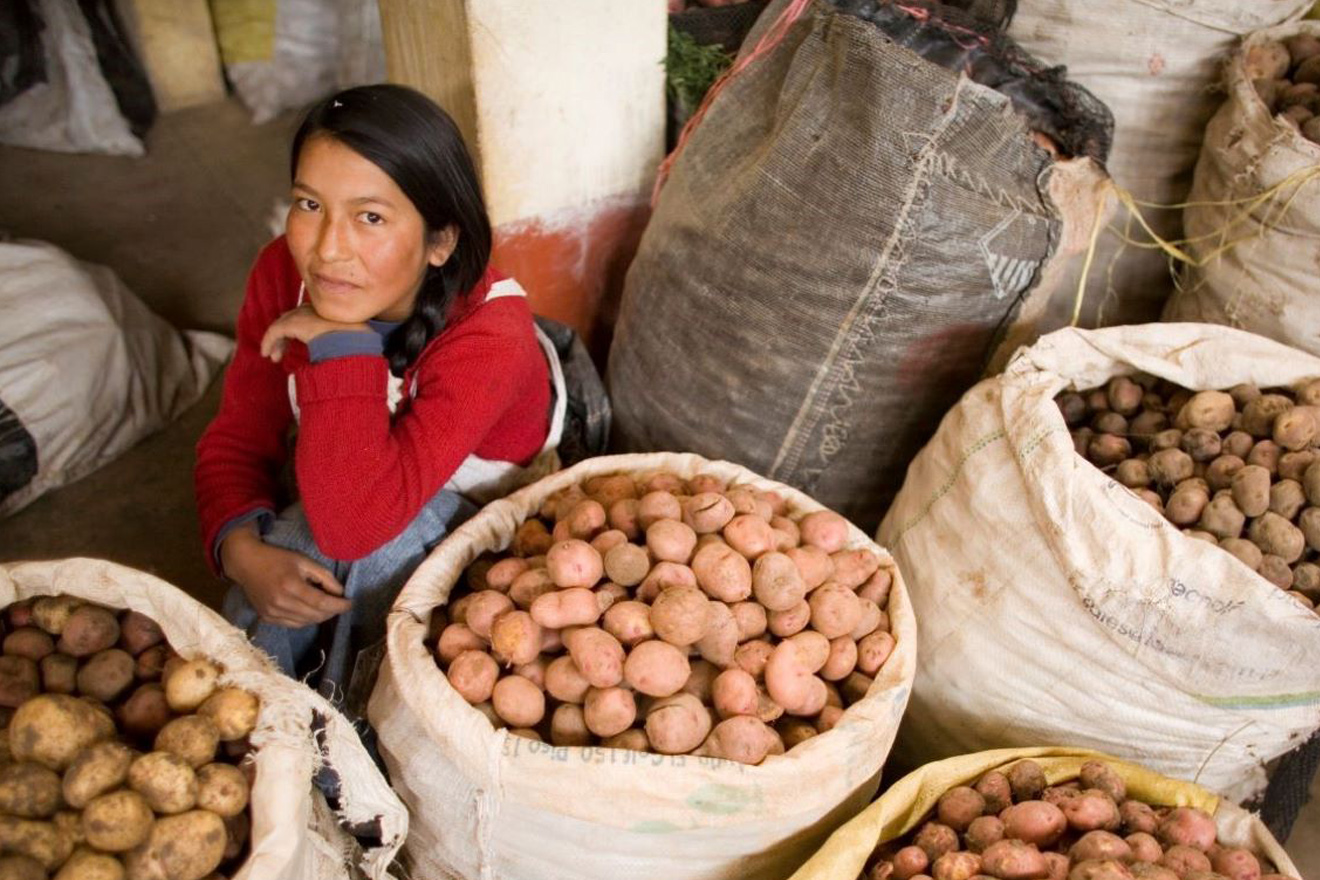Biodiversity conservation is the cornerstone of sustainable agriculture, empowering communities and securing a resilient food future.
IFAD
Water scarcity exacerbates conflicts globally, but sustainable management initiatives, such as IFAD-supported projects in Mongolia and Colombia, demonstrate how equitable access to water can foster peace and prosperity.
Investing in women in agriculture is the surest path to prosperity and food security, empowering communities and fostering a sustainable future.
In a rapidly warming world, transitioning to renewable energy sources like solar power not only fosters rural development but also mitigates the worst impacts of climate change.
Focusing on innovation for a food secure future, the International Fund for Agricultural Development () held its in Rome. IFAD's President emphasized the significance of innovation in reshaping the future of agriculture and showcased examples of AI-powered climate information systems and blockchain technology for digital wallets. The solutions aim to help small-scale farmers increase their production and livelihoods, while building resilience to shocks such as climate change, conflict and economic instability. These changes can have far-reaching impacts since small-scale farmers produce one-third of the world’s food, and up to 70 percent of food in some developing countries.
Rural people help the world flourish and by investing in them, a new day is possible. Here are of 2023.
For small-scale farmers, the climate nightmare is real, and they are severely underfunded. They urgently need support to adapt to a changing world. Here are to action from .
An International Fund for Agricultural Development (IFAD) expert talks about the challenge of obesity; a Technical Specialist on Nutrition discusses how food inflation impacts diets. Lastly, we chat with IFAD’s Director for Food Systems Coordination Nadine Gbossa to discuss the nutritional challenges of Guyana’s indigenous communities.
Despite contributing the least to greenhouse gas emissions, Africa is the most vulnerable continent to the impacts of . In fact, that are most at risk are in . Small-scale farmers in Africa are on the frontlines. They are battling climate change impacts every day, while feeding their communities and driving rural economies. They need the world to invest in them so that they can continue driving their own sustainable development, even in the face of climate change.
For its part, is mobilizing climate finance from a variety of sources, including the , and its flagship programme. IFAD promotes climate-smart agricultural practices, such as the and.
One in nine people globally experienced hunger in 2022. Rural people and vulnerable groups, including women, suffer greater food insecurity—and even those who can access food may not be able to access nutritious food, 's data confirms. We must strengthen climate resilience across food systems and invest in small-scale farmers so they can continue to feed themselves, nearby urban centres and beyond if we are to achieve the Sustainable Development Goals. IFAD supports small-scale producers and partners with farmers’ organizations to promote collective action and economies of scale.
The world is at a crossroad, does it reposnd to crisis after crisis or invest in a structural change for a stronger, more sustainable future? Global crises have exposed how inadequate our resources are to prevent future emergencies. With 4 in 5 of the world’s poorest people living in rural areas, the road to a resilient future runs through rural communities. is investing in rural people for a sustainable future. By making the right choices and the right investments now, a new day—and a better future—is possible.
“Making the most of remittances and diaspora investments can, paradoxically, curb the need for more to migrate. These flows are great contributors to the wellbeing of millions,” said Álvaro Lario, the President the UN’s International Fund for Agricultural Development (IFAD) at the opening session of the Global Forum on Remittances, Investment and Development (GFRID) in Nairobi.
Syrians are laying down roots in their places of refuge and have valuable skills and knowledge that they can use in their host communities. grants are helping refugees fulfil their potential.
Small-scale farmers in developing countries are only one flood, one drought or one failed harvest away from ruin. asks "Tomorrow is a new day. What will it look like?"
Bees and other pollinators are the tiny linchpins of diverse food systems – some bees also make honey. That's why many around the world have taken up beekeeping, with ’s help.

